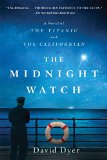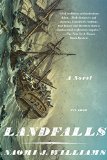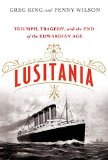Summary | Excerpt | Reading Guide | Reviews | Beyond the book | Read-Alikes | Genres & Themes | Author Bio

A Novel of the Titanic and the Californian
by David DyerThe sinking of the Titanic still strikes a chord with readers as reflected in the overwhelmingly positive ratings BookBrowse's First Impression reviewers gave to The Midnight Watch.
The novel is grounded in sound research
The Midnight Watch tells the story of the SS Californian, the ship that watched the Titanic sinking and did nothing (Carole P). The novel is thoroughly researched as the author was allowed access to court documents from the official inquiry. I found the book to be fascinating and tragic — even though I knew how the story ended, I kept hoping the Californian would come to the aid of the Titanic. The book kept me engaged through the very last line (Amy W). I was fascinated by the idea that such a very small sliver of time could be the subject of a full-length novel. But Dyer fabulously investigates and portrays the facts around the failure of the closest ship to the Titanic to rush to her aid (Erica M). Centering on a fictional news reporter and the real people involved in the tragedy, along with using actual transcripts from U.S. and British inquiries, Dyer develops a very plausible narrative describing the events and possible reasons for the actions that took place (Jeff M).
The recreation of the era is spot on
Dyer delivers a solid characterization of the time period. The sensational journalism, the unsinkable shipping industry, the emerging Suffragettes and the British and American inquiries conducted about the sinking of the Titanic are rich and fascinating. Dyer delivers a great read (Tracy N).
The novel was a slight struggle for a few
There are many fascinating conversations and brief but shining appearances of women characters, but to me, the book lacked a certain focus, which diminished its impact. I had trouble from the beginning differentiating the various characters comprising the crew of the Californian; I reread the beginning several times, but still struggled. These organizational difficulties took a bit away from the otherwise great idea and beautiful writing (Elizabeth T). I would have preferred more detail about the event and less focus on the reporter's personal story. What resonated most with me was the cover-up, still so true in corporate life, and how the story emerged because of courageous whistleblowers (Carol R).
Overall The Midnight Watch generated strong positive reactions
It is important to remember that this is a fictional retelling. It is author David Dyer's interpretation of events. Which is good, because by the end of the book I wanted to track down and punish the crew and officers of the Californian. I was upset reading it, could not stop thinking about it and had to force myself to finish it, not because it is a bad novel but because Dyer makes it so real (Carole P). I cried repeatedly at the loss of life, the insignificance placed on the third-class passengers and the missed opportunities. This is an insightful, provocative and well-written novel (Erica M). I recommend the book to a broad audience, more than just those interested in the Titanic (Jeff M).
![]() This review was originally published in The BookBrowse Review in April 2016, and has been updated for the
April 2017 edition.
Click here to go to this issue.
This review was originally published in The BookBrowse Review in April 2016, and has been updated for the
April 2017 edition.
Click here to go to this issue.

If you liked The Midnight Watch, try these:

by Naomi J. Williams
Published 2016
By turns elegiac, profound, and comic, Landfalls reinvents the maritime adventure novel for the twenty-first century.

by Greg King, Penny Wilson
Published 2016
On the 100th Anniversary of its sinking, King and Wilson tell the story of the Lusitania's glamorous passengers and the torpedo that ended an era and prompted the US entry into World War I.
Your guide toexceptional books
BookBrowse seeks out and recommends the best in contemporary fiction and nonfiction—books that not only engage and entertain but also deepen our understanding of ourselves and the world around us.